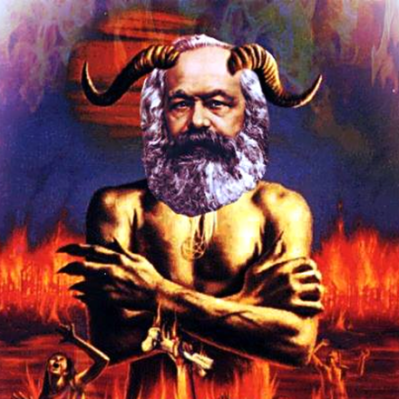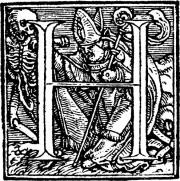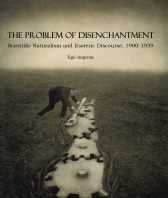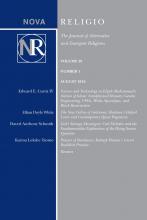 I was pleased to see this new review of The Problem of Disenchantment in the latest issue of Nova Religio. Christopher Plaisance generously concludes that
I was pleased to see this new review of The Problem of Disenchantment in the latest issue of Nova Religio. Christopher Plaisance generously concludes that
New review of The Problem of Disenchantment (Nova Religio)
New podcast interview on esotericism, CSR, and interdisciplinarity (in Norwegian)
Some months back, when I was still in California, Knut Melvær interviewed me for the Norwegian podcast Udannet. The episode is up now. In the unlikely case you have any interest in hearing me stutter on in Norwegian for an hour about my research, the academic study of esotericism, the difficulties of interdisciplinary work, CSR, and related trivia, go check it out. (Bonus feature: bizarre nervous giggling at the 9’50 mark, in response to the question: “But what do esotericism scholars really find out?” – I did have an answer in the end though, phew).
The scholastic imagination
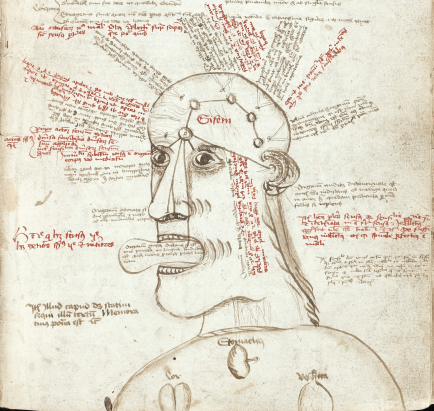
The human sensory and cognitive system, according to the German scholar Johan Lindner of Mönchenburg. Illustration to a manuscript copy of Aristotle’s De Anima (1472-1474), courtesy of the Wellcome Collection (MS 55).
I’ve recently been reading up on medieval theories of cognition. The background is a paper I’m writing on esotericism and “kataphatic practices” – contemplative techniques where the practitioner uses mental imagery, sensory stimuli, and emotions to try and achieve some religious goal: Prayer, piety, divine knowledge, salvation, etc. Kataphatic practices may be distinguished from “apophatic” ones, which, although they may be pursuing the same goals, use very different techniques to achieve them: withdrawing from sensory input and attempting to empty the mind of any content, whether affective, linguistic, or imagery-related (note that the kataphatic-apophatic distinction is more commonly used as synonymous with positive vs. negative theology – that’s a related but separate issue to the one I talk about here). My argument is that esoteric practices are typically oriented toward kataphatic rather than apophatic techniques. The cultivation of mental imagery is usually key – which means that the notion of “imagination” needs to be investigated more thoroughly.
Review symposium on “The Problem of Disenchantment”
The Journal of Religion in Europe has just published a review symposium on my book, The Problem of Disenchantment (2014). I’m excited to say that it contains critical reflections from three world-class scholars of religion, along with my own response. Hans Kippenberg, a well-known expert on Weberian approaches to the history of religion, evaluates some of the book’s claims in light of a broader reading of Weber’s oeuvre. Willem Drees, one of the leading figures in the “religion and science” field, takes a closer look at some of the points I made about the new natural theologies that emerged in the early twentieth century – specifically their relation to esotericism and “heterodoxy”. Finally, Ann Taves, a leading American scholar of religion working with (among other things) the cognitive science of religion and the notion of experience, continues a discussion that she and I have been having over the past few years regarding the perception, explanation and interpretation of “events” (for more on this, check out our forthcomming co-authored target article in Religion, Brain, & Behavior) . If you’ve got access, go ahead and read them!
While you are at it, you may also be interested in checking out my response, which I called “The Disenchantment of Problems: Musings on a Cognitive Turn in Intellectual History” (non-final version uploaded here, and added to my Academia page for easy access).
Why fear the history of science? A brief response to Don Wiebe
 I am more used to being labelled a “scientistic reductionist” than an “anti-science relativist”. While neither is particularly accurate, I was certainly surprised to see Don Wiebe review my book, The Problem of Disenchantment, as a “full-scale attack on modern Western science” (p. 1). Ironically, the review (published online in the journal Religion) appears side by side with an article of mine [free postprint here] that argues for consilience between the humanities and the sciences, so readers are likely to walk away a bit puzzled.
I am more used to being labelled a “scientistic reductionist” than an “anti-science relativist”. While neither is particularly accurate, I was certainly surprised to see Don Wiebe review my book, The Problem of Disenchantment, as a “full-scale attack on modern Western science” (p. 1). Ironically, the review (published online in the journal Religion) appears side by side with an article of mine [free postprint here] that argues for consilience between the humanities and the sciences, so readers are likely to walk away a bit puzzled.
Since the charge of anti-science is a serious one, however, and since it comes from a well-respected scholar whose ardent support for a scientific and secular study of religion I have, in fact, admired since my undergraduate days, it seems necessary to take a moment to clarify some crucial issues that appear to get mixed up in the review.
New articles on the history of psychical research, temporarily for free download
 Historian of science Andreas Sommer, who blogs at Forbidden Histories, just announced the publication of a special section on the history of psychical research and parapsychology, published in the Elsevier journal Studies in History and Philosophy of Biological and Biomedical Sciences. Usually, articles in this journal would be unavailable to most people, but this time Elsevier has provided free download links to the articles that will be accessible until December 7. Sommer has collected the links in his write-up at Forbidden Histories, along with abstracts of the articles. This means that you are just a few clicks away from finding out what role the horse Clever Hans played in the establishment of German parapsychology, how epistemically virtuous William Crookes really was, what sort of relation psychical research had to experimental physics, and what place this elusive discipline has in current historiography and philosophy of science. Among other things. Check it out.
Historian of science Andreas Sommer, who blogs at Forbidden Histories, just announced the publication of a special section on the history of psychical research and parapsychology, published in the Elsevier journal Studies in History and Philosophy of Biological and Biomedical Sciences. Usually, articles in this journal would be unavailable to most people, but this time Elsevier has provided free download links to the articles that will be accessible until December 7. Sommer has collected the links in his write-up at Forbidden Histories, along with abstracts of the articles. This means that you are just a few clicks away from finding out what role the horse Clever Hans played in the establishment of German parapsychology, how epistemically virtuous William Crookes really was, what sort of relation psychical research had to experimental physics, and what place this elusive discipline has in current historiography and philosophy of science. Among other things. Check it out.
Books from the Esoteric Brat Pack
As a member of what’s been called the “brat pack” of esotericism scholars I am proud to note that a considerable number of us are appearing on the scene this year with monographs based on PhD dissertations. The brat pack presumably consists of a group of (then) students and emerging scholars who were around at the time of ESSWE 1 in 2007, and who have frequently been seen together at conferences since. While some of us have teamed up for joint gigs in the past (think The Devil’s Party or Contemporary Esotericism, and the conferences that went with both of these), it looks like 2014 is the big year for solo work. I know of at least four titles either published or forthcoming in 2014 by (for the most part) recent PhDs working in the field of Western esotericism. There may be other publication plans I am not aware of (please leave a note!). Here’s a chronological list of the knowns.
ESSWE PhD Thesis Prize 2015 – Submissions welcome!
A call has just gone out for nominating PhD dissertations for next year’s biannual ESSWE Thesis Prize. So if you are finishing a dissertation on an esotericism related topic, it’s time to slip this call to your supervisor and subtly suggest a nomination. The reward? Honour and glory and € 500 prize money, awarded at next year’s ESSWE Conference in Riga, Latvia. There will be some money available for reimbursing travel expenses to Latvia. The awarded dissertation will be recommended for publication in the Aries Book Series. More information on who can apply, when, to whom, and so forth, see the call – which I also paste below.
